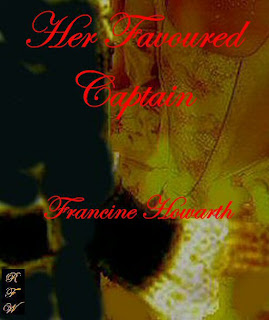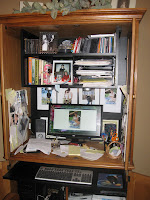For a while I read romance. Exclusively. Probably beginning in high school, other than required reading for English literature classes, I didn't go far without a Harlequin American Romance in my hand. I eventually branched out into historicals and single titles, but for me, romance was queen.
In time I expanded my horizons further. A group of friends started a social book club, and we read a plethora of types of books: historical fiction, women's fiction, chick lit, best-sellers...but no real romance.
As I've gotten older, I still enjoy my romance, but my main fare these days is Young Adult Fiction. Ironic, isn't it? As a teenager I read adult romance and as an adult I'm reading fiction for teenagers.
The thing is, there's so much good writing out there for young adults these days. Perhaps not good in a 'classic' literature sense, but good as in a 'I can't put the book down' kind of way.
For me, it all started with Harry Potter. I was hooked on those books from the moment I picked the first one up. I've found that I have a taste for the paranormal in teen books. I fell totally in love with the Twilight series. (I think I've read them all seven or eight times by now.) I've always loved romantic vampire stories, so this was right up my alley. Recently I read the available books in the House of Night series. (Again, more vampires.) A friend just gave me the first in The Immortals series. (Not quite vampires, but close enough.) This summer I read all of the Alex Rider (He's a teen-aged James Bond) adventures. Another favorite series is The 39 Clues.

Even in adult books I like series more than stand alone. Perhaps it's once I've found something I like, I want more and more of it. I really like the Sookie Stackhouse books. (More vampires, plus HBOs True Blood is my guilty pleasure!) The Chocoholic Mysteries are a fun read. And I really enjoyed Lois Greiman's Chrissy McMullen books. When I need some hard core adventure, I turn to Dirk Pitt or Kurt Austin novels from Clive Cussler.

Most of these are "keepers" and go on the shelves of my personal library, to perhaps be read again and again.
My girlfriends and I share book suggestions, so I'm never without something waiting in the pile to be read. I've also discovered that it's hard to read other romance when I'm writing a romance myself. Things tend to get all tangled in my mind. Still, I have quite a large collection of romance in my library.

So, how about you? What's on your list these days besides romance?
Until next time,
Happy Reading!
Debra
www.debrastjohnromance.com
.jpg)






